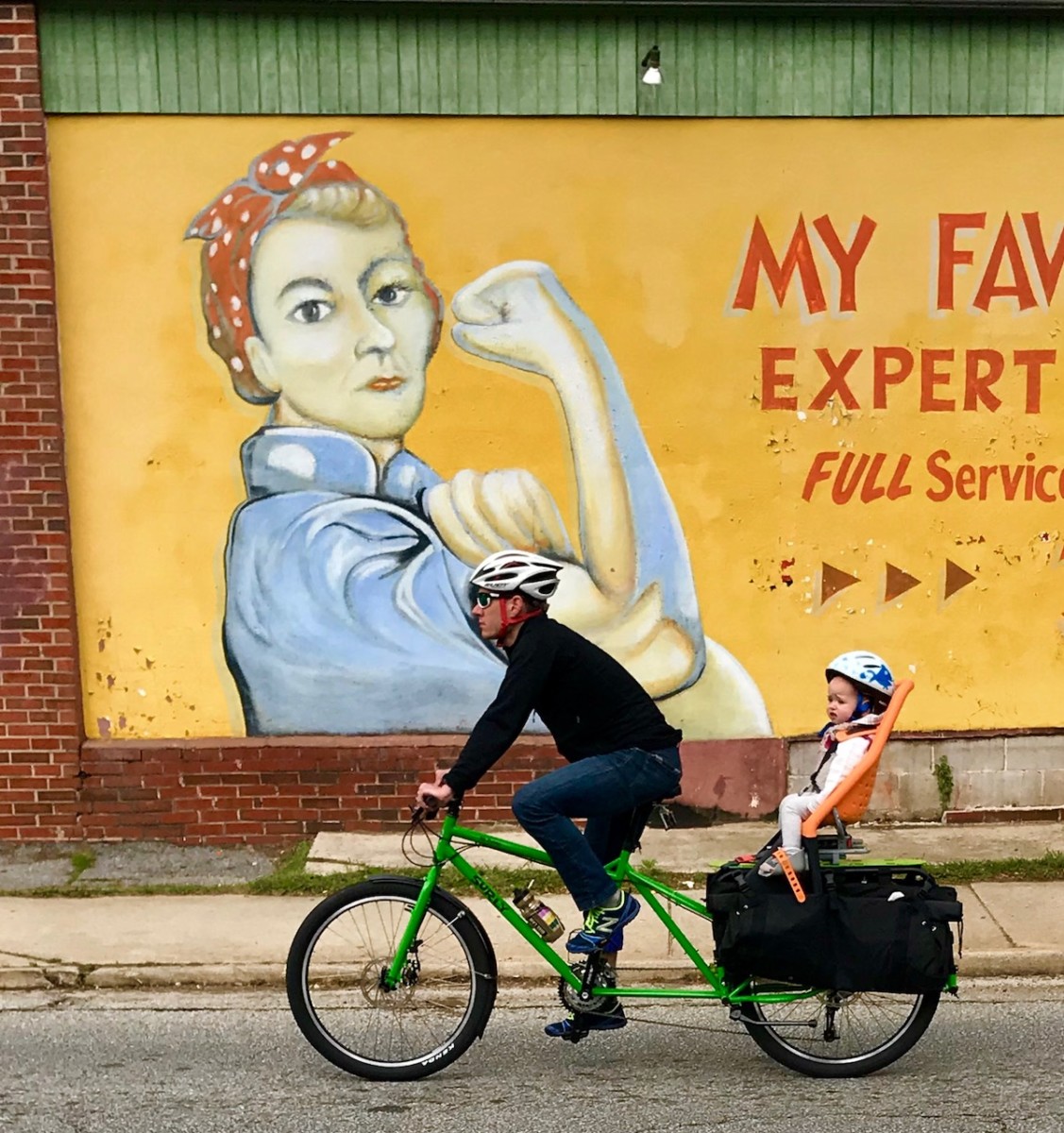Play all audios:
By David Pendered Atlanta’s by-the-numbers report on bicycling in the city is nothing short of a milestone that marks the cultural shift in attitudes about transportation underway in
sub-tropical Atlanta. The report shows how much attitudes have changed in the 25 years since a prominent developer said traffic wasn’t a concern for him and most of his developer friends.
Speaking off the record, he said he and the others had grown up poor, done well, and now traveled in comfortable cars. Traffic delays were almost a pleasure in those comfortable cars. Such
was Atlanta’s transportation culture that, until 2008, Atlanta didn’t have a comprehensive plan for transportation by any mode. The Connect Atlanta Plan didn’t provide granular guidance for
developing bikeways, according to a later report. About six years later, a comprehensive bicycle plan was added to the Connected Atlanta Plan. Now, the city has created a report for the sole
purpose of documenting bike trips and the infrastructure that enables them, the 2017 Annual Bicycle Report. Even its these early days of data-gathering, the report can show that more than
720,000 bike trips were made last year just in Midtown. More machines to count bike trips in other parts of town have been installed and more are planned. Given that people quantify things
that are important to them, the city’s decision to quantify results of its pro-bicycle campaign speaks to the notion that bicycling is no longer an outlier in transportation planning. Tim
Keane, Atlanta’s planning commissioner, said as much in the report: * “Rethinking our system for moving around the city to promote physical access, health and prosperity in our communities
is an unwavering necessity. … Bicycling infrastructure, bike share and ridership hold great significance to ensuring a multi-modal future. … This annual Bicycle Report will highlight our
residents’ enthusiasm about the optimization of Atlanta as a bicycle friendly city, and ensure that we are held accountable in pursuing and achieving the goals set forth by the Department of
City Planning. “ Bicycle advocates contend the city still has a long way to go to encourage and enable more folks to ride a bike to their destination, rather than travel by car. The Atlanta
Bicycle Coalition, for example, did its part to inject bicycling into the 2017 city elections. The coalition maintained its political presence through the run-off campaign for mayor and
posted responses from Keisha Lance Bottoms and Mary Norwood to questions posed by the coalition. Now that Bottoms is mayor, she can be held accountable to responses that include giving the
Atlanta Bicycle Coalition a seat at the table in transportation planning, and support for the pro-bike Atlanta City Design that Keane oversaw and referenced in his full comments. To the
coalition’s question – “The population of Atlanta is likely to double in the years ahead. What transportation-related policy changes and investments will you make to enable Atlanta to handle
the expected surge in population, jobs, and traffic?” – Bottoms responded: * “I think the City needs a smarter, more nimble, stand-alone Department of Transportation. Currently,
transportation is divided between the City Planning and Public Works Departments. This split has been a hindrance for us and I will change that. I commit to having the Atlanta Bicycle
Coalition at the table as this new Department is stood up and staffed. * “Significant planning and community engagement has already gone into the City’s Atlanta City Design book. My
administration will be guided by the framework established in that book. Additionally, I believe strongly that development must be concentrated around (within 1/2 mile) of MARTA stations.
The projected growth in people cannot come with the same number of cars.” All this said, the report shows Atlanta has more than doubled the mileage of bikeways in the city since 2010.
Counting everything from bike lanes to multi-use paths, the mileage has increased to some 116 miles, up from 53 miles, according to the report. In addition, the Relay Bike Share program
started in June 2016 has recorded a total of 193,395 miles traveled via the bike fleet. The fleet has grown from 100 bikes at 10 stations to 500 bikes at 75 stations, according to the
report. The Bicycle Art Program provided 18 local artists to design and paint locally crafted bike-shaped racks for bicycles. Looking forward, the city intends to continue improving bikeways
in the Atlanta BeltLine and six MARTA rail stations – Hamilton E. Holmes, West Lake, Oakland City, West End, Edgewood/Candler Park and Inman Park/Reynoldstown. As a result of attention to
bicyclists, bike lanes are being installed on Sylvan Road, a project now underway, according to the report. _RELATED POSTS_

